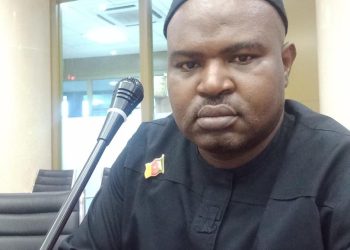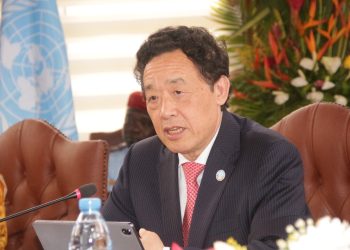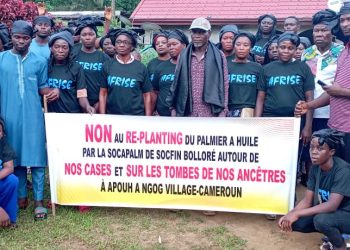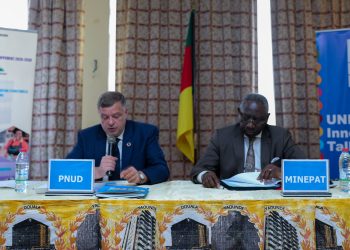Story, Louvier Kindo Tombe
When crops are harvested, important nutrients are removed from the soil, because they follow the crop and end up at the dinner table. If the soil is not replenished with nutrients through fertilizing, crop yields will deteriorate over time.
There is thus a growing need to improve agricultural productivity and farm performance, particularly in the regions most wanting of food, and experts believe that this should be done sustainably, not jeopardizing the food security of generations to come.
“The best way to secure food security for generations to come is to embrace agroecology,” says madam Voufo Marie Pauline, focal point of the Knowledge Center for Organic Agriculture (KCOA) – Central Africa hub.
She was speaking during a training seminar for media on broadcast of knowledge on organic agriculture and agroecology. The seminar took place on Friday 24 March 2023 at Ndanga Hotel in the outskirts of Yaounde, the political capital of Cameroon.
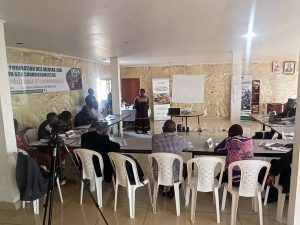
Agroecology is about producing food while preserving the land that feeds it and the people who work it. More than a practice, it is a way of life. It integrates a set of agricultural practices based on the use of elements available in nature to develop agro-pastoral production while preserving the soil and the environment as a whole.
“We want the world to know that another agriculture is possible, and the media is best placed,” madam Voufo Marie Pauline said.
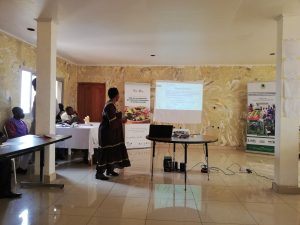
During the seminar, the different media practitioners were schooled on the importance of organic agriculture and agroecology.
“Organic agriculture and agroecology promote food systems that increase food security and improve living conditions, while also respecting the Earth’s ecological limits,” madam Voufo said in her presentation at the seminar.
Research has proven that products from organic agriculture and agroecology have more nutritional values needed for a healthy growth. They equally contribute immensely to soil fertility.
The training seminar for media on broadcast of knowledge on organic agriculture and agroecology was within the framework of encouraging farmers to embrace the farming methods and consumers to turn to consume organic products for their safety.
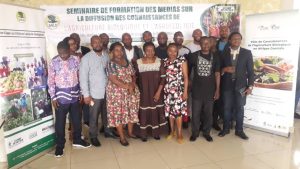
Identifying best practices
Before the introduction of chemical fertilizers, agriculture was purely organic, and products were not only healthy but very nutritive. Chemical fertilizers have come to disrupt the process.
Chemical fertilizers are a combination of potentially harmful chemicals. Studies have shown that using them in agricultural practices greatly affects the food chain. This is because they mainly target the fast growth of plants and animals rather than their nutritional values.
To reverse the trend and encourage proper agricultural practices, SAILD invites farmers to revisit good old farming habits that worked.
Traditional organic composting and integrated crop-animal farming, agroforestry, intercropping, crop rotation, cover cropping, are prominent traditional agricultural practices.
To SAILD, the more farmers embrace organic agriculture and agroecology, the more the product will be available in the market,and the more it will become cost effective.
“It is very possible for farmers in Cameroon to embrace mechanised organic agriculture and agroecology,” says Appolinaire Tetang, agricultural engineer in charge of counsels at SAILD.
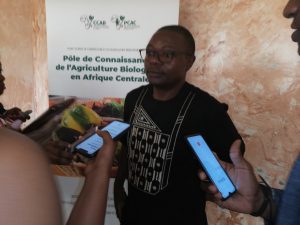
“Thinking agroecology is thinking the future.”
The objective from SAILD to return to good old farming habits is in line with the mission of the Knowledge Center for Organic Agriculture (KCOA).
Discover KCOA
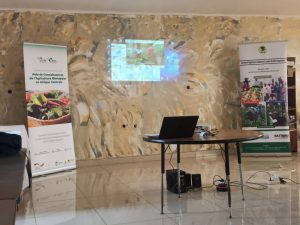
More than half of all people living in Africa base their livelihood on agriculture; yet, many farmers are impoverished and one-fifth of the population suffer from malnutrition. Only 0.2 per cent of agricultural land in Africa is dedicated to organic farming. In the past, this has been due to limited knowledge of how organic products are produced, processed and marketed.
The Knowledge Centre for Organic Agriculture (KCOA) is working to fill these knowledge gaps by establishing five knowledge hubs across the continent. The hubs operate in three fields of action.
They expand access to knowledge on organic agriculture and agroecology by collecting, validating and converting it into suitable formats and languages, as well as making it available on a centralised database.
They boost the technical and professional skills of multipliers in the areas of organic agriculture and agroecology. To this end, they train master trainers and multipliers on how to disseminate the knowledge in a manner adapted to target groups.
For the purposes of networking across the continent, they strengthen the working relationships between representatives from the value chains, civil society, private sector and state organisations.
The international non profit organization SAILD is one of the civil society organizations that runs the Knowledge Hub for Central Africa (KHCA).


